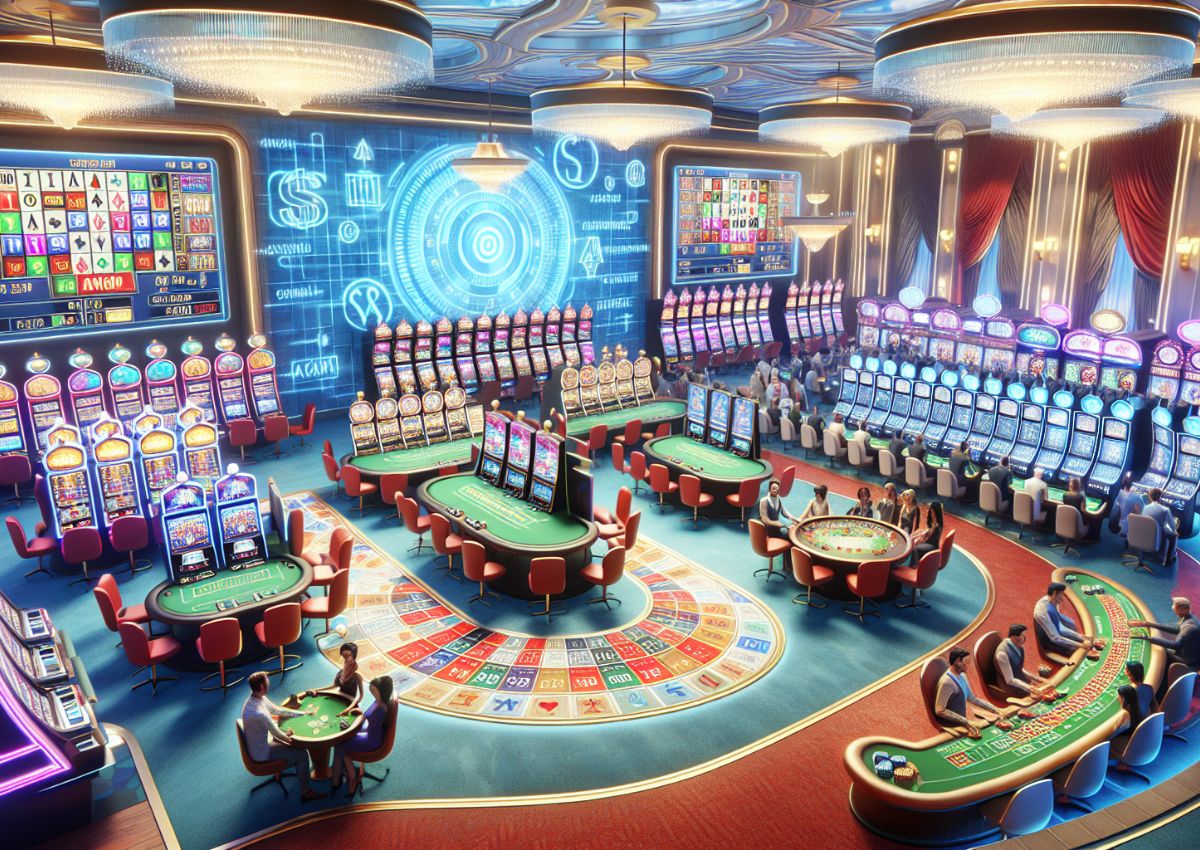Betting has been an integral part of human entertainment for millions of years, transforming through cultures and eras to become the vibrant casino activities we know today. gg88.com From the ancient Chinese and Romans, who participated in different forms of gambling and luck, to the sophisticated gaming floors of today’s casinos, the attraction of gamble and winning has captivated individuals across the globe. The change from basic dice games and primitive betting setups to the extravagant environments of modern casinos reflects considerable strides in both cultural standards and technological advancements.
As societies evolved, so too did the complexity of gambling activities, with gambling activities emerging as a separate category of entertainment and excitement. These games have transformed from casual gatherings centered around traditional tables to expansive, lavish establishments designed to lure players. Today, we delve into this fascinating journey, examining how historical practices laid the foundation for the diverse and exciting casino games that bring joy to millions worldwide.
spintax
Early Wagering Practices
Gambling has deep roots in human history, with indications of games of chance originating from ancient societies. Archaeologists have found that as far back as 3000 BC, the ancient Chinese were using primitive forms of betting with dice made from ivory. Similarly, ancient cultures of Mesopotamia engaged in gambling activities, often relying on the casting of lots or dice to determine outcomes. These early forms of gambling served not only as amusement but also played important roles in social and cultural customs.
The Egyptians also were involved in betting activities, with games that included betting on the results of various occurrences, including athletic events and religious festivals. Items such as dice and depictions of players from ancient tombs show that betting was a common pastime. It provided both leisure and a means of engaging in social interaction, often linked to joyful occasions or major gatherings. This behavior demonstrated the universal appeal of chance and competition throughout history.
In ancient Rome, betting became a prevalent practice among the populace, as evidenced by references in texts and the establishment of guidelines around certain activities. Romans enjoyed a variety of betting activities, from wagering on horse races to playing games like modern-day board games. The legal structure surrounding these activities began to take shape, establishing the foundations for betting regulations that would develop in the centuries to come. The fame of betting during this period set the stage for the development of gambling house games in the future.
The Development of Casino Games
Gambling games have experienced notable transformations from their beginnings to the contemporary entertainment selections. In historical civilizations, gaming was frequently connected to ceremonial practices, with games of dice found in the ancient Mesopotamian region and wagering on the outcomes of events in ancient Rome. These primitive forms of gambling laid the basis for the formal games we see today. The change from informal gambling to systematic games occurred as societies began establishing rules and venues for wagering, showing cultural values and practices.
The medieval period saw the rise of card games, which gained fame among European nobility. Games like primero and the game baccarat became mainstays in social gatherings. The creation of printing technology also facilitated the spread of playing cards, making them more accessible to the general public. As gambling houses began to multiply, these card games developed into variations that appealed to wider audiences, eventually leading to the founding of casinos as specialized venues for gaming.
The 1900s marked a pivotal point in the evolution of casino games, with the growth of commercial casinos in Vegas and other gambling hotspots. This era brought forth games like slot machines and modern versions of table games, complete with high-quality graphics and detailed betting structures. The advent of online casinos in the tail end of the 1990s also revolutionized the gaming industry, allowing players to access a great variety of casino games from the safety of their homes. Today, casino games go on to develop, blending traditional elements with advanced technology to create immersive experiences for players globally.
Contemporary Gambling Regulations
In these years, the landscape of gaming laws has developed significantly, notably as tech advances and internet-based gambling have become more prevalent. Authorities around the planet have enacted numerous laws and guidelines to make certain that gambling activities are carried out equally, responsibly, and openly. These laws often cover aspects such as licensing, advertising, gambler safeguards, and responsible gaming measures. Authorities aim to minimize issues such as gambling addiction and fraudulent activities while supporting a fair gaming environment.

The growth of internet gambling sites has necessitated a different approach to regulation. Many jurisdictions have established specific online gaming structures that serve internet-based gambling, allowing operators to offer their services legally. These structures often demand operators to obtain permits, follow strict safety standards, and offer assistance options to help players. By vigilantly monitoring online activities, authorities can more effectively protect players from risks and make sure that gaming is conducted in a safe manner.
Moreover, contemporary gambling regulations are increasingly concentrating on responsible gaming initiatives. Many casinos and internet-based platforms now adopt features such as player exclusion, financial limits, and breaks to help players manage their gaming habits. Awareness campaigns aimed at raising awareness about the risks of gaming are also frequent. As the industry continues to grow, the emphasis on sensible gaming remains a fundamental principle of governing efforts, reflecting a dedication to encouraging a secure and enjoyable gambling experience for all gamblers.